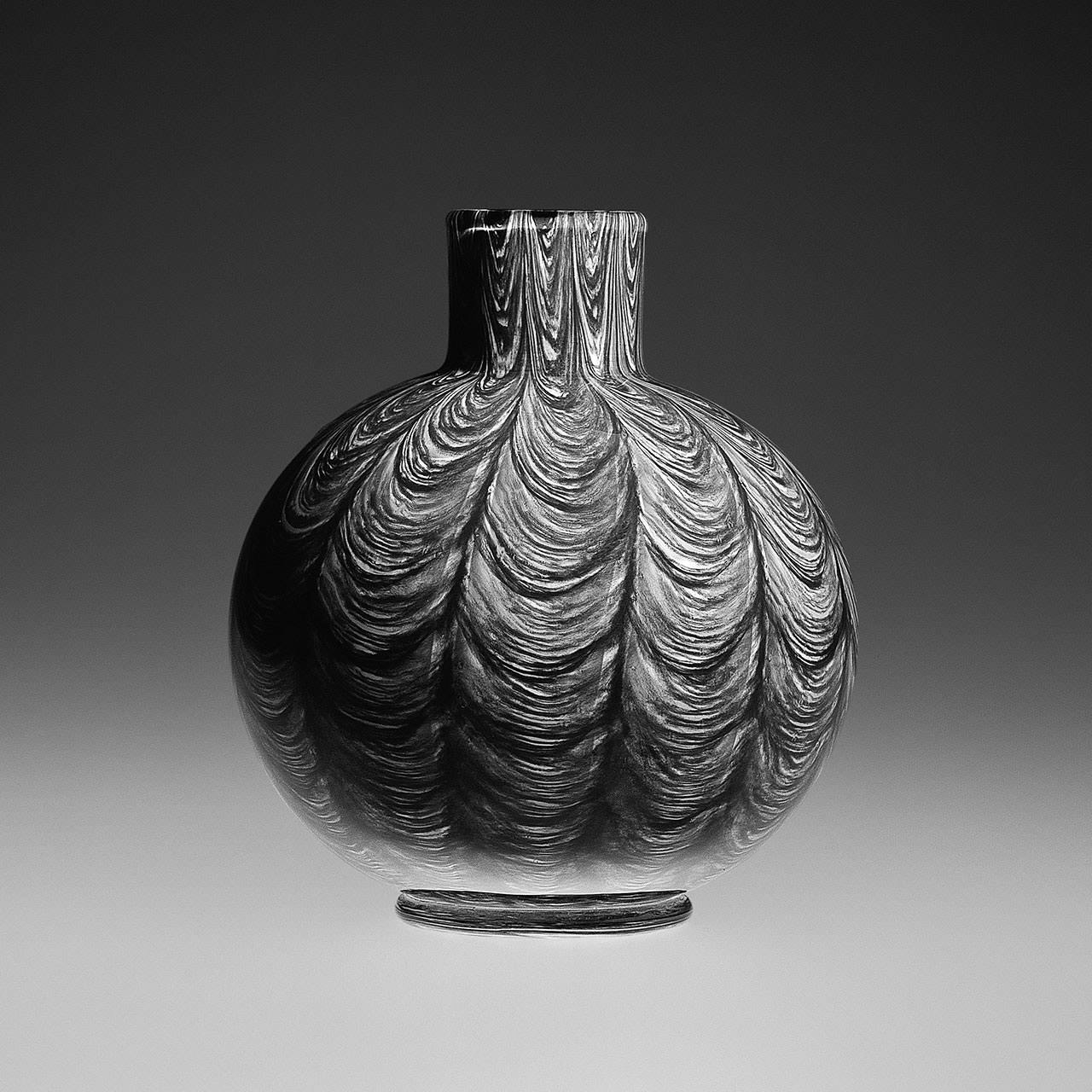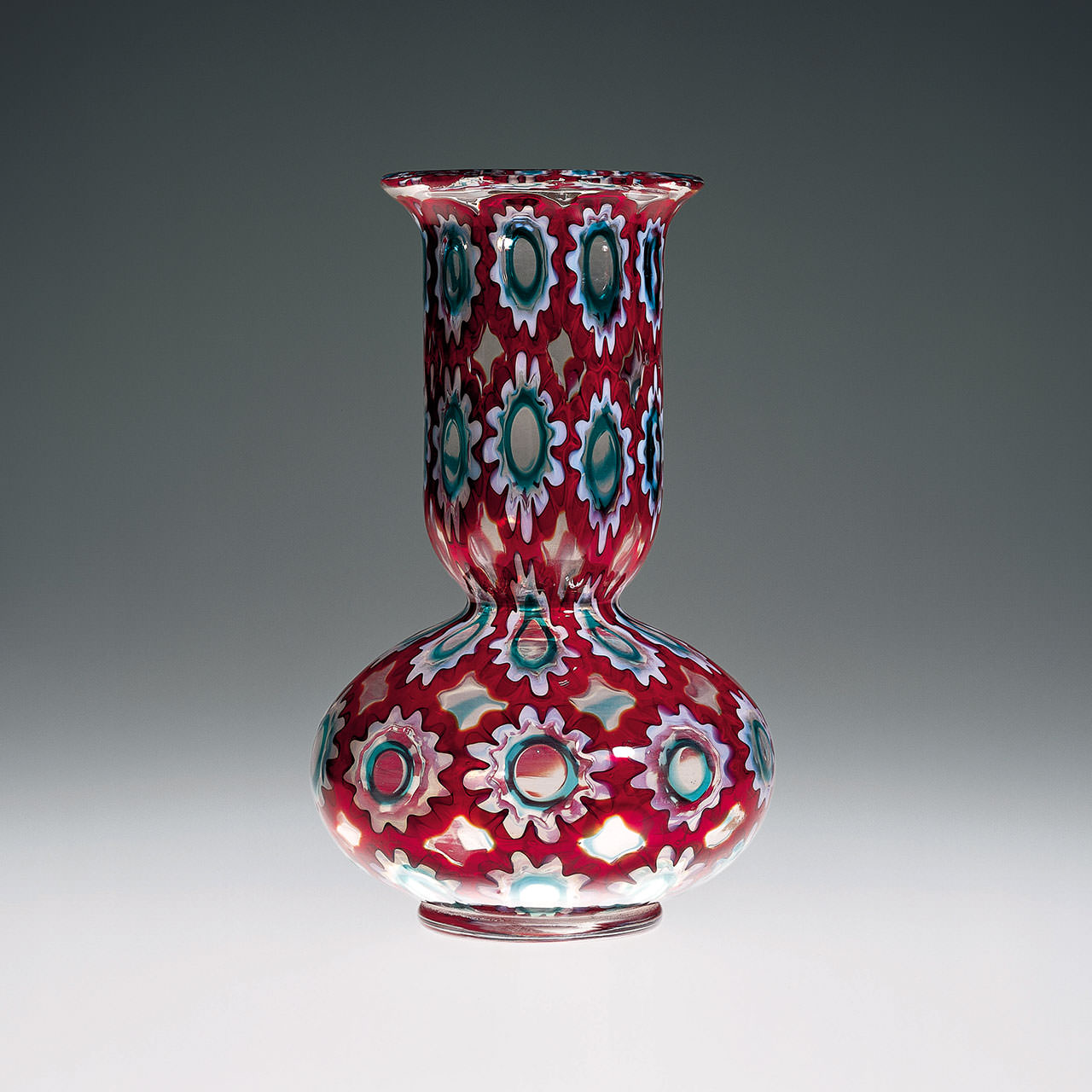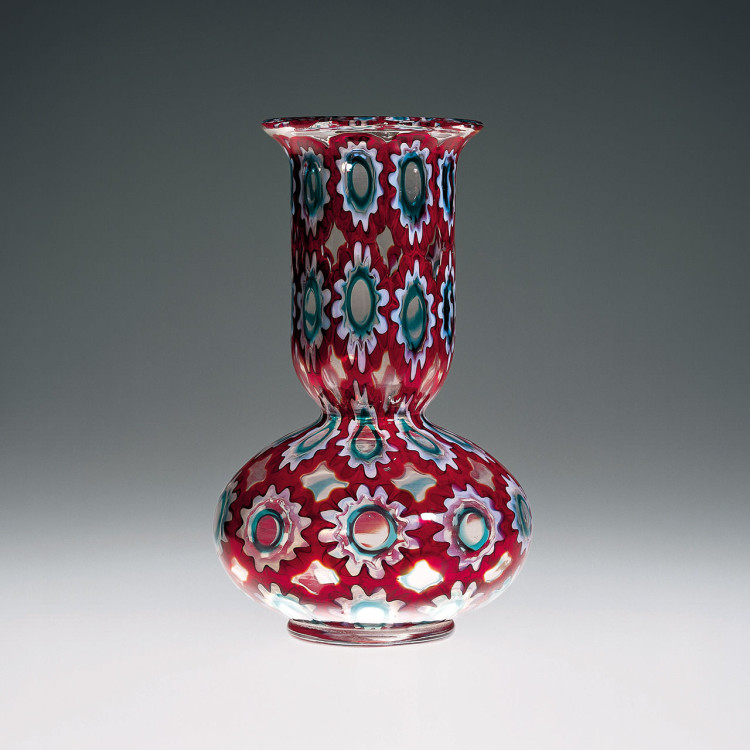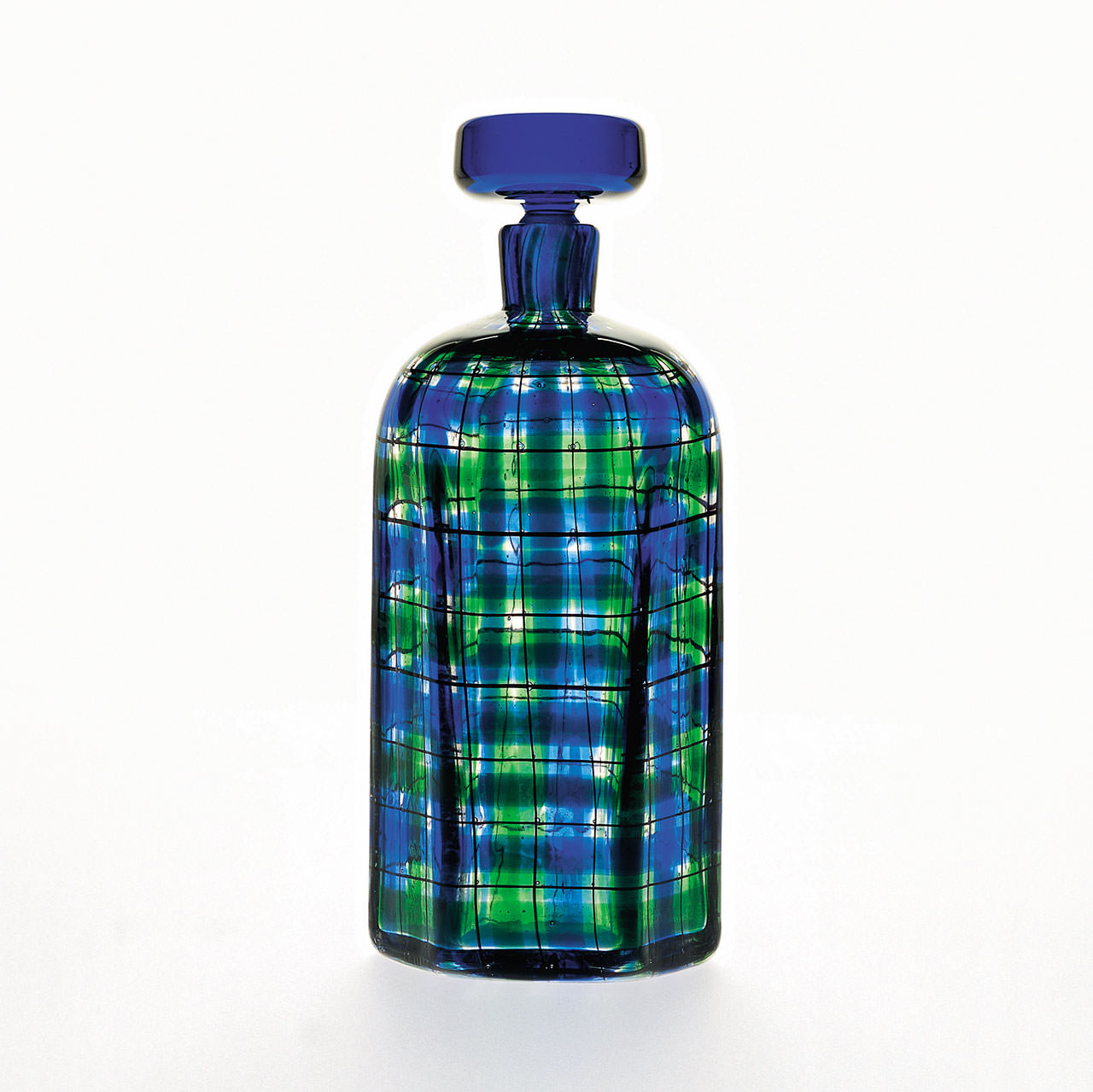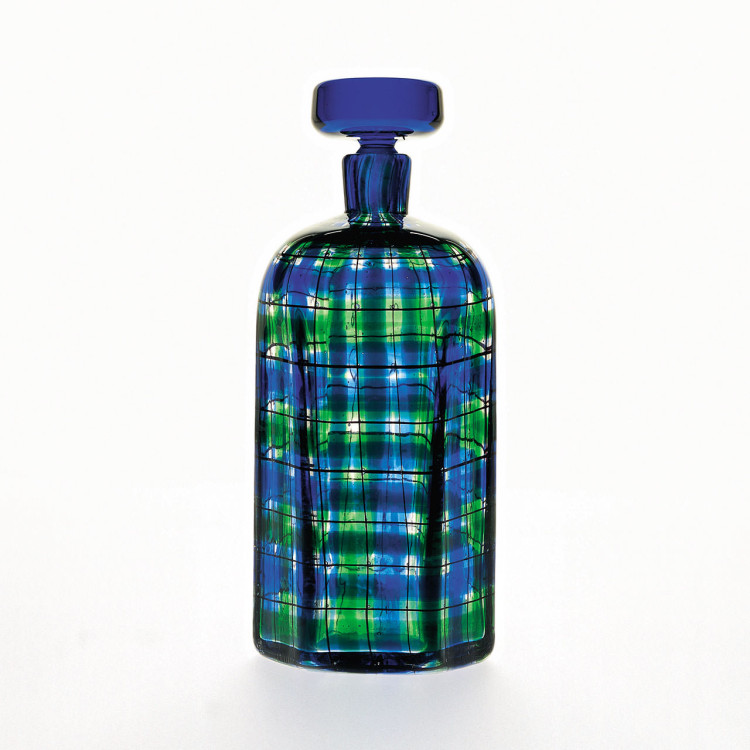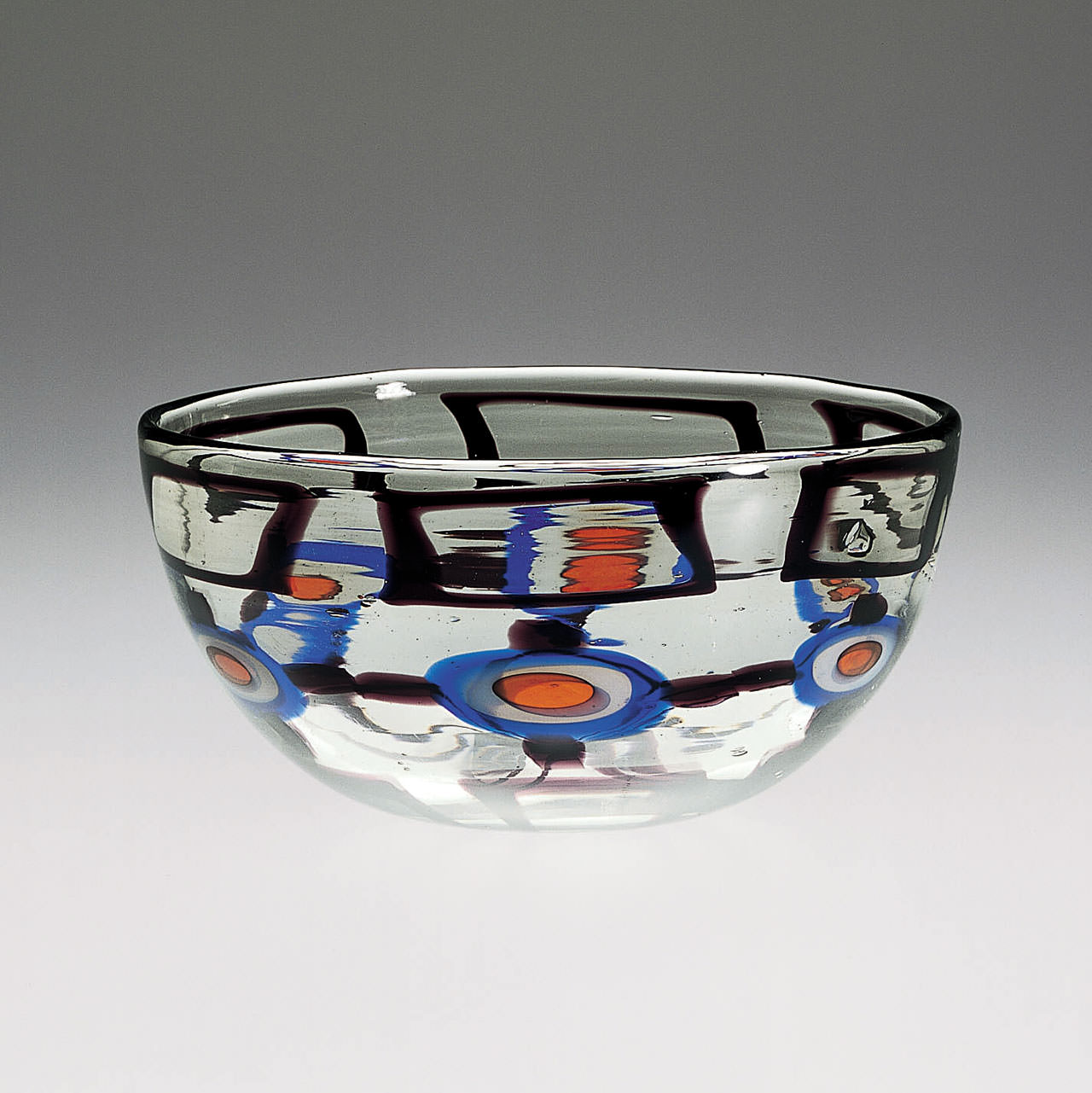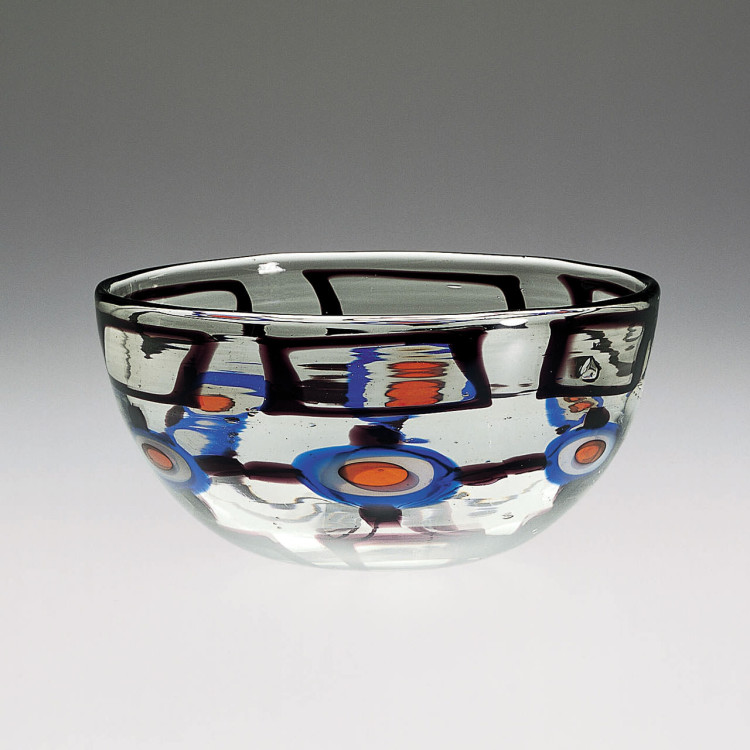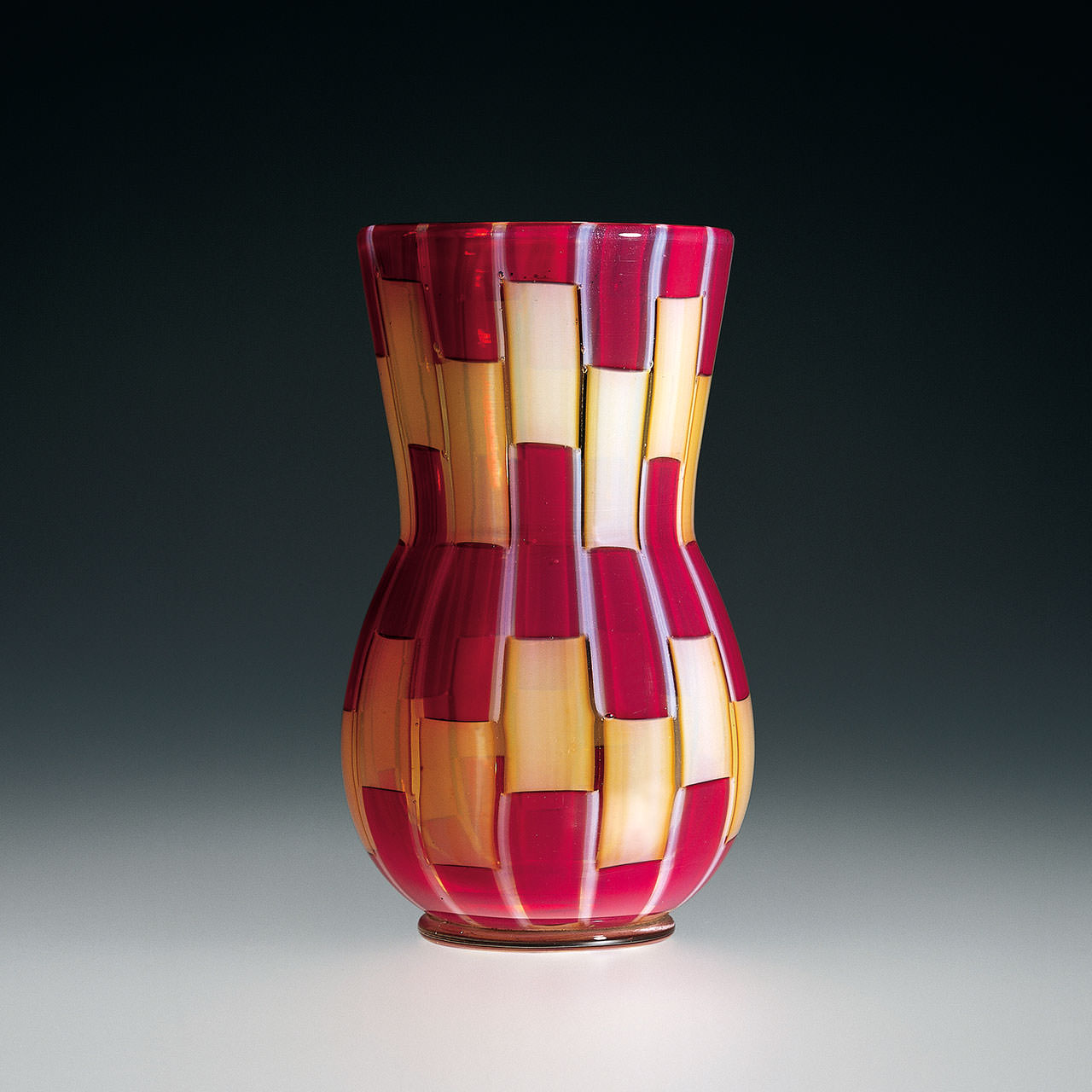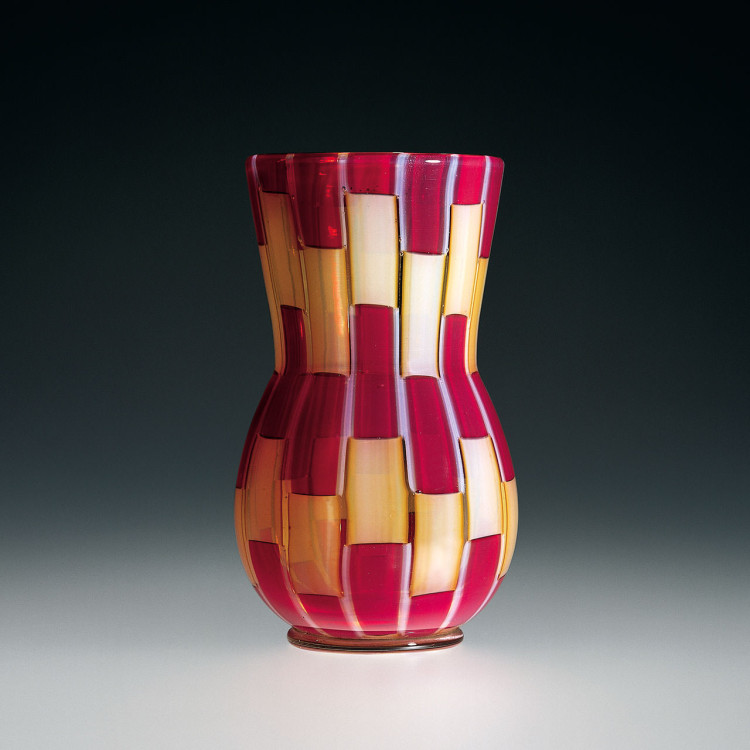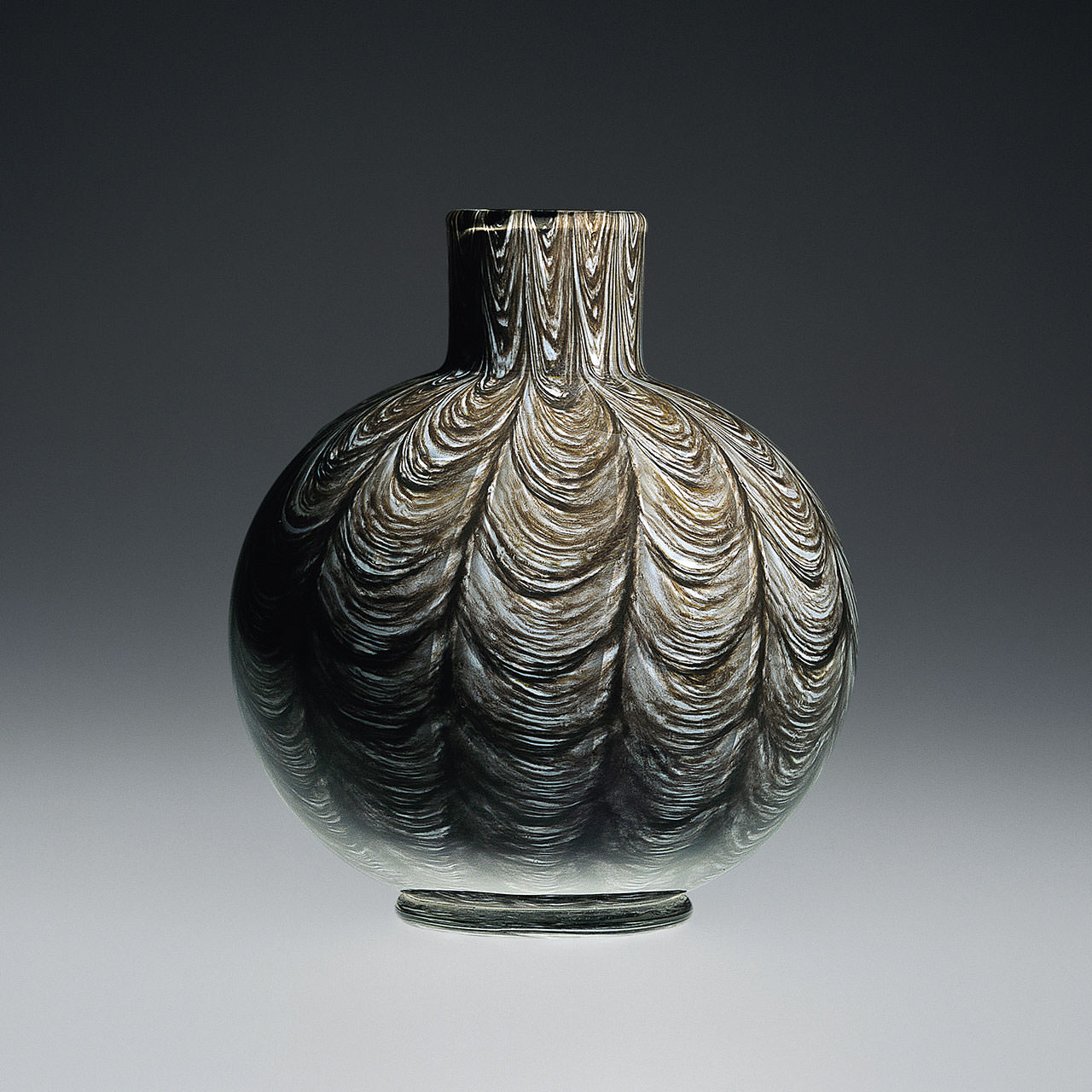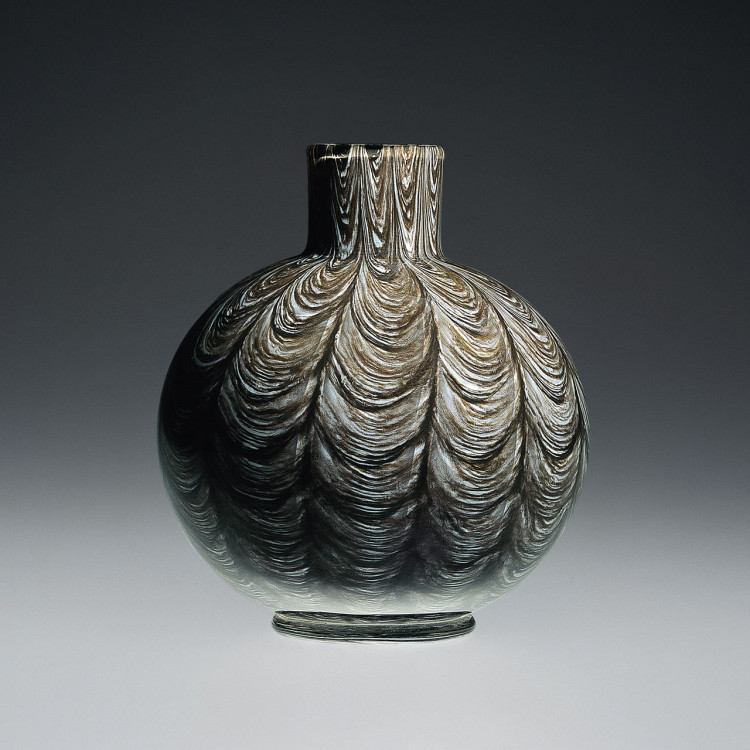Ercole Barovier PezzatoBarovier & Toso, 1956
Glass vessel crafted with the use
of red and lattimo patches of glass, sommersi in opaline glass.
10 in. high (25.4 cm)
Exhibitions:
1993, Venice, L’Arte dei Barovier Vetrai di Murano 1866-1972,
Querini Stampalia;
2000, New York, Venetian Glass, Museum of Arts & Design;
2001, Milan, Murano: Vetri dalla Collezione Olnick Spanu, Spazio Oberdan.
Bibliography and comparative texts:
A. Dorigato, 1989, p. 139;
M. Heiremans, 1989, n. 52;
M. Barovier, 1993, p. 171;
F. Deboni, 1996, n. 53;
M. Heiremans, 1996, nn. 160, 161;
Olnick Spanu, 2000, n. 126;
Olnick Spanu, 2001, n. 164.
Glass vase composed of green, cristallo, and amethyst glass patches arranged in a herringbone pattern.
9 in. high (23 cm)
Bibliography and comparative texts:
R. Linzeler, 1922, p. 666;
C. Carrà , 1923, p. 67;
R. Linzeler, 1923, p. 83;
R. Papini, 1930, n. 570;
G. Mariacher, 1967, p. 98;
R. Barovier Mentasti, 1982, n. 252;
Mille anni…, 1982, n. 503;
F. Deboni, 1984, p. n. 70;
W. Neuwirth, 1987, nn. 7, 104;
A. Dorigato, 1986,
p. 71;
F. Deboni, 1989, n. 1;
L’arte del vetro, 1982, n. 307;
M. Heiremans, 1993, n. 191;
M. Barovier, R. Barovier Mentasti,
A. Dorigato, 1995, n. 15;
A. Venini Diaz de Santillana, 1996, n. 1;
R. Barovier Mentasti, 1998, n. 25;
A. Venini Diaz de Santillana, 2000, n. 1;
Olnick Spanu, 2000, n. 8;
Olnick Spanu, 2001, n. 13.
Vase composed of grey and red triangular shaped transparent glass patches sommersi in cristallo.
12 in. high (30 cm)
Bibliography and comparative texts:
R. Linzeler, 1922, p. 666;
C. Carrà , 1923, p. 67;
R. Linzeler, 1923, p. 83;
R. Papini, 1930, n. 570;
G. Mariacher, 1967, p. 98;
R. Barovier Mentasti, 1982, n. 252;
Mille anni…, 1982, n. 503;
F. Deboni, 1984, p. n. 70;
W. Neuwirth, 1987, nn. 7, 104;
A. Dorigato, 1986,
p. 71;
F. Deboni, 1989, n. 1;
L’arte del vetro, 1982, n. 307;
M. Heiremans, 1993, n. 191;
M. Barovier, R. Barovier Mentasti,
A. Dorigato, 1995, n. 15;
A. Venini Diaz de Santillana, 1996, n. 1;
R. Barovier Mentasti, 1998, n. 25;
A. Venini Diaz de Santillana, 2000, n. 1;
Olnick Spanu, 2000, n. 8;
Olnick Spanu, 2001, n. 13.
Cylindrical vase composed of two alternating glass bands. One band is made of circular cristallo, lattimo and blue tessere, the other is Diamond-shaped cristallo and black tessere.
9 in. high (23 cm)
Bibliography and comparative texts:
R. Linzeler, 1922, p. 666;
C. Carrà , 1923, p. 67;
R. Linzeler, 1923, p. 83;
R. Papini, 1930, n. 570;
G. Mariacher, 1967, p. 98;
R. Barovier Mentasti, 1982, n. 252;
Mille anni…, 1982, n. 503;
F. Deboni, 1984, p. n. 70;
W. Neuwirth, 1987, nn. 7, 104;
A. Dorigato, 1986,
p. 71;
F. Deboni, 1989, n. 1;
L’arte del vetro, 1982, n. 307;
M. Heiremans, 1993, n. 191;
M. Barovier, R. Barovier Mentasti,
A. Dorigato, 1995, n. 15;
A. Venini Diaz de Santillana, 1996, n. 1;
R. Barovier Mentasti, 1998, n. 25;
A. Venini Diaz de Santillana, 2000, n. 1;
Olnick Spanu, 2000, n. 8;
Olnick Spanu, 2001, n. 13.
